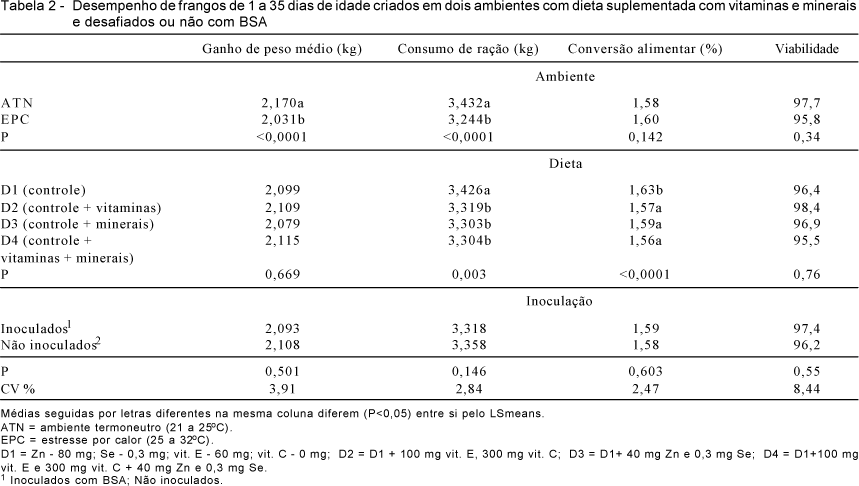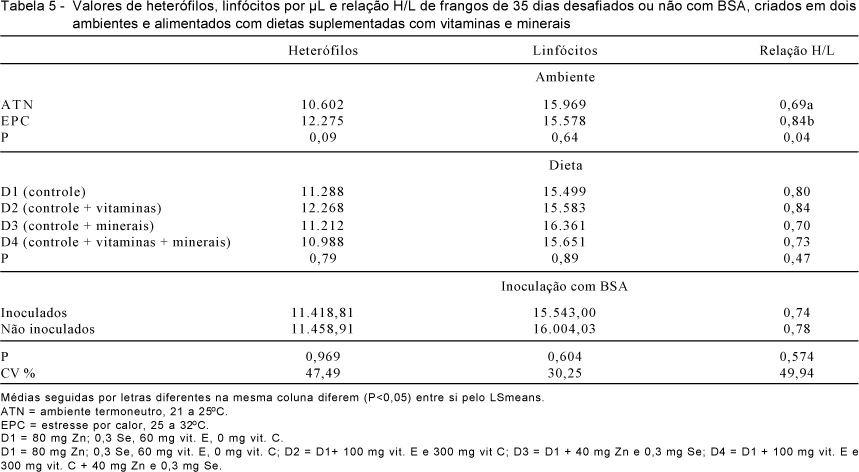The objective of this experiment was to evaluate the effect of diet supplementation with vitamins C and E and organic minerals Zn and Se on immunological parameters of broilers from 1 to 35 days, kept on cyclic heat stress (25 to 32°C) and to evaluate the usefulness of bovine serum albumin (BSA) inoculation to determine humoral immunity. A total of 272 Ross broilers were used to evaluate four types of vitamin-mineral supplementation (VMS): D1- control diet with 60 and 30 IU of vit E for starter and growing diet, respectively, zero vit C, 80 ppm of inorganic Zn, 0.3 ppm of inorganic Se; D2 - control diet + 100 UI vit E and 300 ppm vit C/kg; D3 - control diet + 40 ppm Zn and 0.3 ppm Se/kg, both from organic sources; D4 - control diet and levels of VMS used in D2 and D3), and two environments: thermoneutral (TNA) and cyclic heat stress (CHS) from 14 days of age. Six and five birds per type of supplementation in CHS and TNA, respectively, were inoculated with BSA at 12 and 24 days. Birds serum at 35 days-old was analyzed by ELISA. Supplementation with vitamins and minerals did not influence antibody production of broilers challenged with BSA. Heat stress improved antibody anti-BSA production regardless of the diet. Inoculation with BSA did not influenced broiler performance and was a good strategy to evaluate humoral immunity of broilers, since the birds responded to the challenge improved antibody production and increased bursal size, despite the higher individual variation.
nutritional immunomodulation; selenium; vitamin C; vitamin E; zinc





